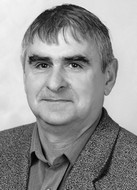Mental and physiological mechanisms for athletic strength building and control
Фотографии:
ˑ:
PhD, Associate Professor A.M. Trofimov
Yelets State Ivan Bunin University, Yelets
Objective of the study was to find factors of influence on the athletic strength building process and the relevant control mechanisms. Applied for the study purposes were relevant psychological knowledge collection and systematization method; high nervous activity physiology and motor activity research methods; consciousness introspection method; and empirical data mining method.
It was found that the muscular contraction strength is determined not only by the number of muscular fibers and volume of microfibers in the latter but also the quantity of directly engaged muscular fibers that may widely vary depending on the situation. It was also found that individual willpower is the key factor in the muscular fibers mobilization process i.e. the degree of the volitional effect on the muscle group control centers. The motor center volitional control power and relevant responses, however, are naturally limited by the bodily physiological barrier i.e. the maximal achievable CNS excitation rate, plus a variety of additional natural limitations including the following: imperfect motor skill level; low motivation; fatigue of the CNS; and emotional distractions. The study analyses the mechanisms of influence of these limiting factors on the athletic strength building process.
Keywords: strength abilities, volitional potential, volitional potential reducing factors.
References
- Trofimov A.M. Teoriya psikhicheskogo obraza i assotsiatsiy [The theory of Mental Images and Associations]. Yelets: Bunin YSU publ., 2010, 526 p.
- Kholodov Zh.K., Kuznetsov V.S. Teoriya i metodika fizicheskogo vospitaniya i sporta. Ucheb. posobie dlya stud. vys. ucheb. zavedeniy [Theory and methods of physical education and sports. Textbook for higher ed. est.]. 5 th ed., ster.. Moscow: Akademiya publ., 2007, 480 p.




 Журнал "THEORY AND PRACTICE
Журнал "THEORY AND PRACTICE